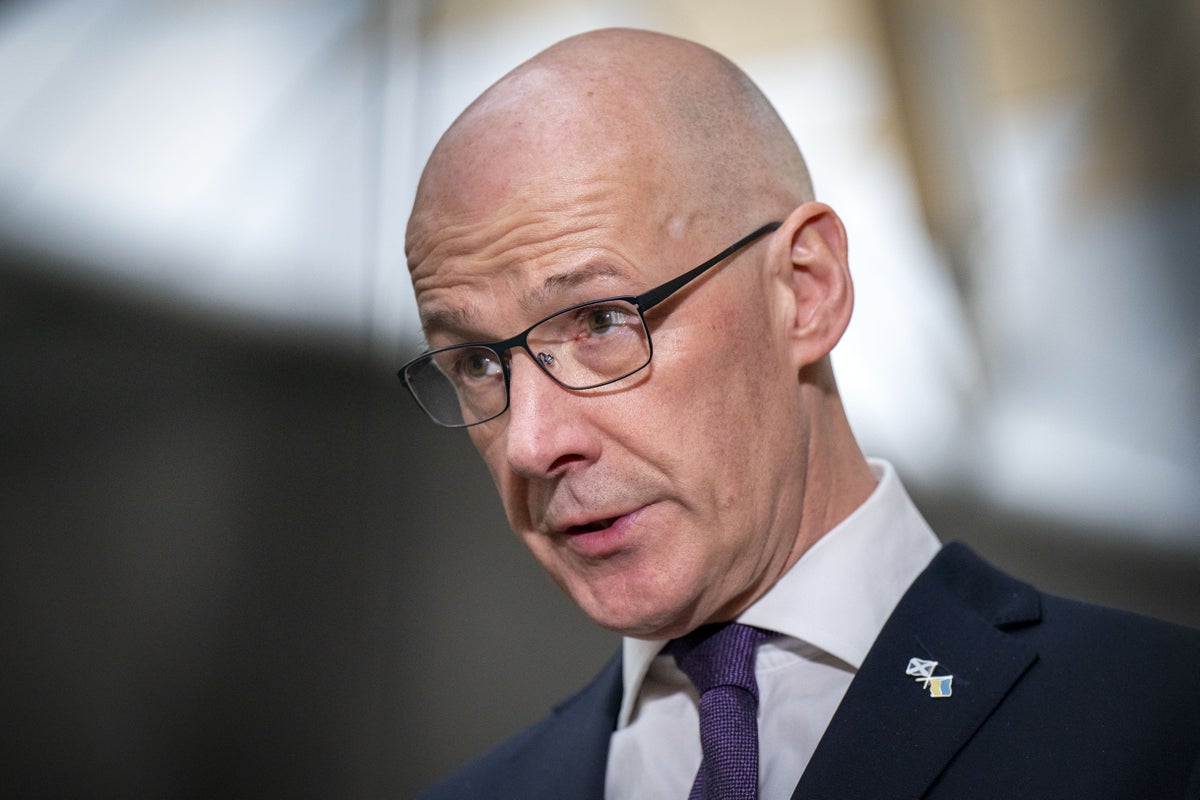
The cost-of-living crisis shows up the “fiscal constraints of devolution”, Scotland’s Deputy First Minister has said as he prepares to set out the Scottish budget.
The draft budget will be published on Thursday afternoon against a backdrop of high inflation and costs, with John Swinney saying this week he faced “difficult decisions” in forming his proposals.
In previous years, the budget has been subject to intensive negotiations with other parties to secure the required votes to pass, but with the agreement between the Scottish Government and the Scottish Greens, the budget can be passed without opposition party support.
Mr Swinney said previously the budget would focus on tackling child poverty, public services and moving towards net zero, while adding the Scottish Government “will use its limited powers to the maximum extent that is responsible”.
Speaking ahead of the budget announcement on Thursday, the Deputy First Minister said: “Our budget goals are mutually beneficial and represent a distinctive approach to the economic challenges we face.
“The Scottish budget will take further steps to address inequality and eradicate child poverty. It will encourage a just transition to net zero, creating wealth and opportunity across the country.
“It will be the catalyst for reforms necessary to ensure our first-class public services remain sustainable in the face of the challenges to come.
“I would like to go even further but the cost-of-living crisis has also laid bare the fiscal constraints of devolution, as we cannot borrow to support day-to-day expenditure when times are hard to assist us through these difficult days.
“It is clear that businesses and households are paying a steep price for the economic mismanagement of the UK Government.
“The cost-of-living crisis requires decisive action.
“In setting this budget, the Scottish Government will use its limited powers to the maximum extent that is responsible, to meet the challenges faced by the people of Scotland.”
The Scottish Conservatives said on Wednesday that the Scottish Government should fully pass on the £1.2 billion of consequentials from recent UK Government spending decisions and drop the £20 million spend slated for an independence referendum the SNP hopes to hold next year.
Scottish Labour said it wants to see an increase to public sector pay to ensure no-one earns less than the living wage, as well as calling for the freezing of water charges.
The Scottish Liberal Democrats priorities include investment in energy efficiency, social care and long Covid support.
Scottish Greens finance spokesman Ross Greer said the budget will have “people and planet at the core”.
Scotland’s biggest teaching union, the EIS, has urged the Scottish Government to give adequate funding for a new pay settlement for teachers.
The profession has been locked in a dispute in recent months, with further strike action planned for early in the new year.







